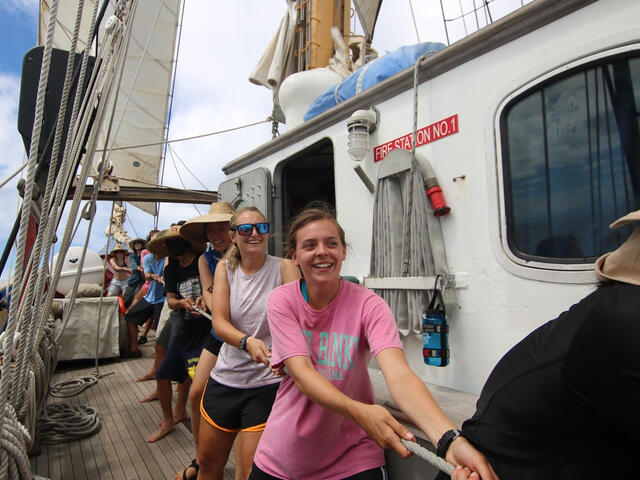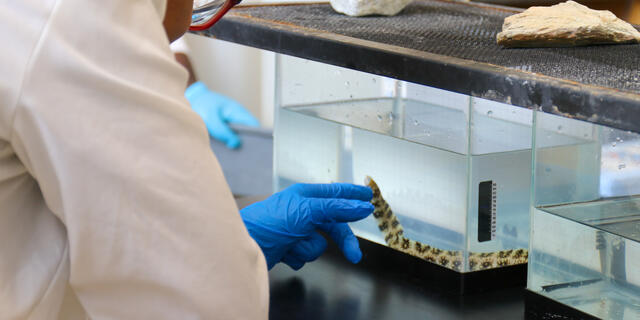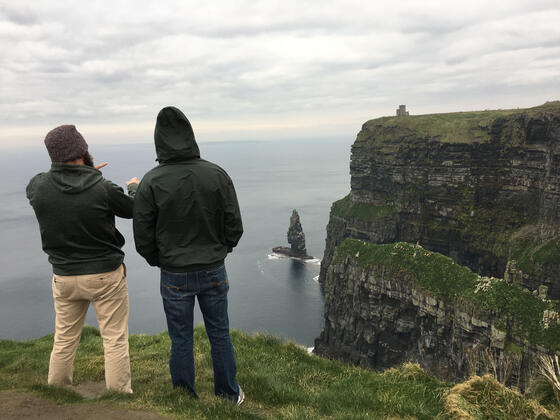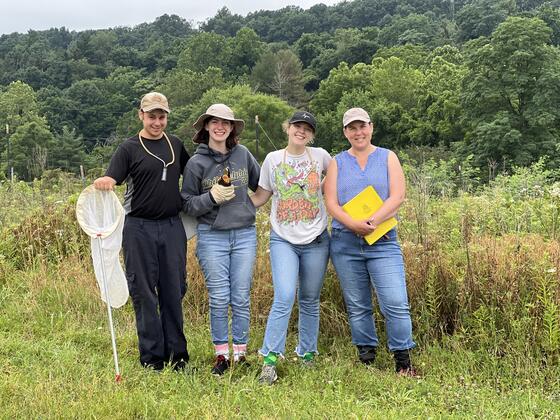Biology - Ecology & Evolution
How to know if Ecology & Evolution is the right major for you: You spend a lot of time thinking about how ecosystems work together. Your favorite museum exhibit is about long-extinct animals and Earth's history. You're driven to investigate the science behind nature.
McDaniel Commitment in Action

Alumna discovers a mission in the planet’s most remote coral reefs Going Places After Graduation
Just days after her graduation this May, Riley Palmer sailed from Tahiti to Hawaii on board SEA Semester’s ocean research vessel, the 134-foot brigantine SSV Robert C. Seamans. Along the 2,600 nautical mile route, the Biology major from Pikesville, Md., studied the effects of environmental change on remote and pristine Pacific coral reefs.

Biology professor receives research grant from the National Science Foundation
Allison Kerwin, assistant professor of Biology, has received a three-year grant of $437,393 to study the effects of insecticides on jellyfish development and survival from the National Science Foundation (NSF) as part of the Building Research Capacity of New Faculty in Biology (BRC-BIO) program.



